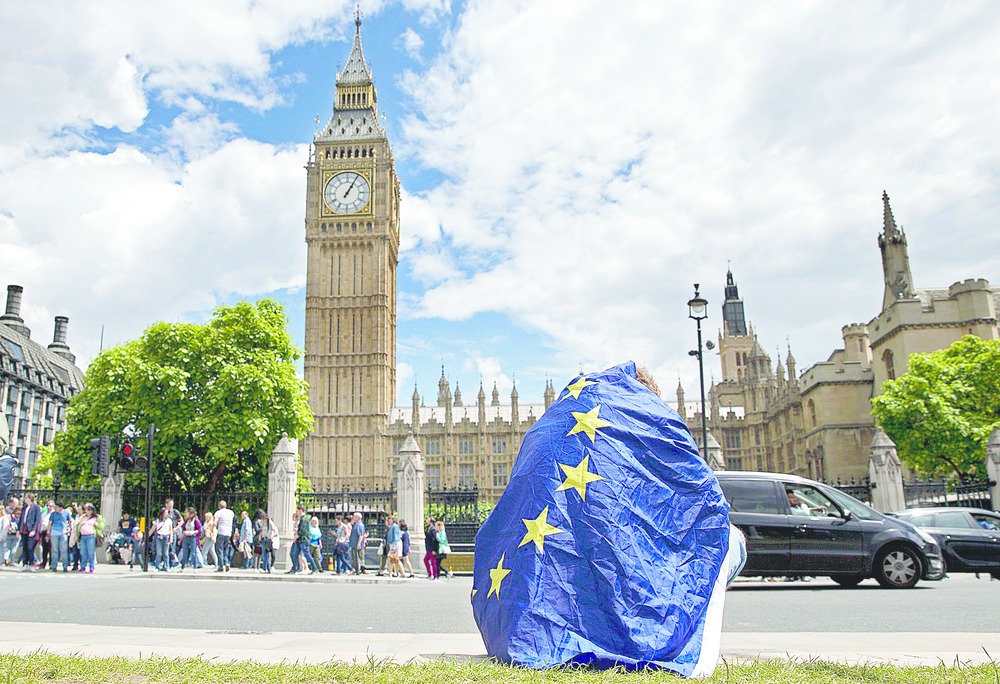
Frankfurt (Germany), June 25: Hours after Britain decided to leave the European Union, Emmanuel Lumineau cast his own "remain" vote - with his feet.
The French chief executive of BrickVest, a start-up that allows customers to invest small sums in real estate online, said he would move to Paris from London and take about 10 employees with him.
The looming question yesterday was how many other executives might reach the same conclusion, undermining Britain's status as the No. 1 destination in Europe for foreign investment.
Lumineau's reasoning was simple. His customers operate under European rules and so must he. "We need to be inside."
Brexit's long-term business consequences will take years to fully emerge, largely because no one knows what kind of new trade barriers and regulations will emerge from negotiations with the EU. But already there are worrisome signs that the Remain camp's warnings of economic tumult could come true.
Jamie Dimon, chief executive of JPMorgan Chase, warned his staff in a memo yesterday that in months to come "we may need to make changes to our European legal entity structure and the location of some roles".
Dimon had said before the vote that up to a quarter of JPMorgan's 16,000 employees in Britain might need to relocate.
Shares of British property companies have plunged on fears that the Brexit vote will cause a recession and deflate London's real estate boom.
Juergen Maier, the top executive in Britain of Siemens, said the German electronics and engineering giant might need to rethink its investment plans. He predicted others would do the same, at least until they can judge the impact of Brexit. "All companies will be holding fire to see what happens," Maier said.
For decades, big multinational companies have used Britain as their business-friendly, English-speaking beachhead to Europe. As an EU member, Britain offered frictionless access to the mainland, while the legacy of Margaret Thatcher meant there was far less regulation than in France or Germany.
Now that the English Channel suddenly seems a lot wider, businesses are waiting nervously to see what kind of new Europe will take shape. Negotiations on a post-Brexit trade relationship are likely to be messy and take years.
It is not all bad for business, though. The plunging pound will help the tourism industry by making Britain cheaper to visit. BMW Mini automobiles and other products manufactured in Britain will be less expensive for people paying in euros and other foreign currencies. That could be good for exports.
Britain could also be free to follow its free market instincts without interference from Brussels. If the Leave forces are correct, that would make the country a magnet for companies seeking to escape the regulatory corset of mainland Europe.
But any advantages are likely to be outweighed by the enormous uncertainties ahead. With no road map, executive decision-making could be paralysed and investment could come to a standstill.
Britain's financial services industry, which employs 1.2 million people, is especially vulnerable. New stock listings in London are likely to all but cease while companies take stock of the damage.
Foreign banks may face the costs of moving thousands of employees out of London to the Continent so they can satisfy regulations governing trading and investment advice on behalf of European clients. London had provided a convenient hub to serve Europe.
James P. Gorman, the Morgan Stanley chief executive, and Colm Kelleher, the president, have said they have no plans to relocate staff from London. But in a memo to employees - many of whom worked through the night to handle a huge trading volume - they said they might "consider adjustments to our operating model".
Perhaps no company embodies the European project more than Airbus, a politically driven consortium that allowed Europe to remain a player in the aircraft industry after smaller national manufacturers could no longer compete.
Airbus produces wings in Broughton and employs 15,000 people in Britain plus tens of thousands more at suppliers. Outside the union, Britain may no longer have as strong a claim on those jobs.
"This is a lose-lose result for both Britain and Europe," said Thomas Enders, the Airbus chief executive. "We will review our UK investment strategy, like everybody else will."
Other sectors as different as petrochemicals and Scottish whisky could be damaged by increases in customs duties, diverging legal requirements and slumping growth.
Energy companies like BP or Royal Dutch Shell are worried about having to deal with an unwieldy snarl of differing regulations once the EU umbrella is gone. "Uncertainty is never helpful for a business such as ours," BP said in a statement yesterday.
US technology companies like Google and Facebook have sizable operations in Britain, though their headquarters are technically in low-tax countries like Ireland and the Netherlands.
Google employs roughly 1,000 engineers across Britain, working on global products like its search engine and Android mobile operating system. Technology companies could be under pressure to move sales and marketing jobs from Britain so that these employees can still have access to Europe's common marketplace.











